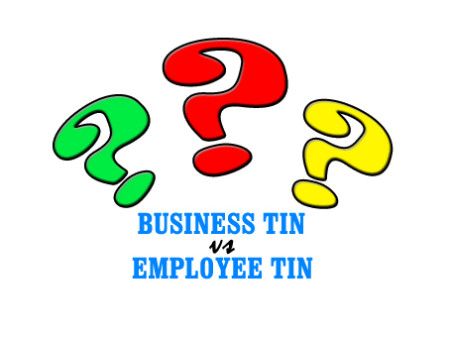A reader asked the difference between business TIN and employee TIN. For those who are interested to be clarified, then read on.
A business TIN is issued when an applicant is into selling products and/or rendering services or social cause or is a mixed-income earner. It can be referred to as employer TIN or self-employed TIN. An employee TIN is issued when an applicant is hired to work by an employer. An in depth comparison of both TINs is shown below.
Difference Between Business TIN And Employee TIN
|
BUSINESS TIN |
EMPLOYEE TIN |
Application Form:
|
Application Form:
|
| The applicant must acquire the TIN on or before the commencement of business | The applicant must acquire the TIN within 10 days from date of employment |
| The applicant himself or an authorized agent applies for TIN and initiates transfer of RDO | The employer applies TIN for its employee; For an employee with existing TIN, the employer initiates the transfer of RDO, when applicable |
| For individual, it can be applied personally or online in the BIR web site thru eREG; For non-individual, the applicant must apply personally at the BIR | It can be applied personally by the applicant or online in the BIR web site thru eREG by the employer |
| Must be applied in the RDO where the business is located | Must be applied in the RDO where the employer is registered |
| For mixed-income individual and professional, TIN is the same for all income sources and transactions; For stockholder, individual TIN should be different with that of corporate TIN | TIN should always be the same regardless if an employee has multiple employers |
| Secondary Registration is required such as Application for Authority to Print (ATP) Receipts for receipts/invoices and registration of books of accounts | After TIN is issued, no secondary registration is required. |
| The last 3-digit of the 12-digit TIN, referred to as the branch code, may have values ranging from 001 to 999 depending on the number of branches of the business | The last 3-digit of the 12-digit TIN, referred to as the branch code, always end with three zeroes (000) and may be printed only as 9-digit TIN |
Registered BIR Forms include:
And other applicable BIR Forms, depending on type of registration, such as but may not be limited to:
|
May use BIR Form No 0605 for payment of second installment (1700 – Annual Income Tax Return) or penalties as a result of assessment |
If you have queries and clarifications on this article or you want to add more, you may post them in the comment area.
Views – 7493